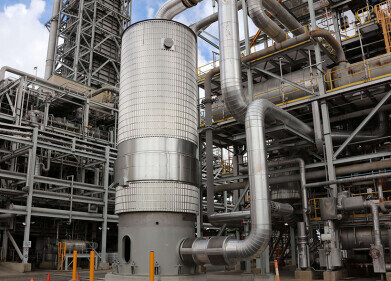Air Clean Up
What is Indoor Air Pollution?
Dec 15 2015
The dangers of poor air quality are well-documented – one only has to look at a news report of Beijing, Delhi or, even closer to home, London to see the health complications that can be caused by prolonged exposure to harmful contaminants in the air. With all these dangerous elements at large, it might seem tempting to hole up in your flat or house and not venture out at all!
However, such an approach could theoretically be far more damaging. In fact, it has been found that indoor air pollution claims far more lives than outdoor air pollution on an annual basis. In 2012, 2.6 million deaths were attributable to outdoor air pollution, while contaminants behind closed doors accounted for a whopping 4.3 million deaths!
What Causes Indoor Air Pollution
The primary reason why air quality levels are so much poorer indoors than outdoors is bad ventilation. Especially in newer, energy-efficient buildings, houses can be almost airtight, thus reducing loss of warmth and saving on bills, but also preventing harmful pollutants from dissipating. There are a number of different types of dangerous chemicals and elements which can linger in the home, causing potentially devastating health risks in the long run. Among these the following are included:
- Tobacco smoke. Smoke from cigars or cigarettes contains around 200 poisonous toxins, at least 43 of which are carcinogenic. Even if you don’t smoke personally, second-hand smoke can prove just as deadly.
- Radon. Often lying undetected in the foundations underneath houses, radon is the second largest cause of lung cancer, behind the tobacco smoke mentioned above.
- Combustion fumes. A recent study by Sheffield University found that nitrogen dioxide levels were as much as three times higher inside than outside in homes which used a gas cooker. Other harmful fumes, such as carbon monoxide and particulate matter, can be generated through fireplaces, woodstoves and space heaters.
- Toxic chemicals. Damaging compounds such as terpenes and ethers are found in many household cleaning products and can linger in the air long after use.
- Pesticides. Despite mainly being used outdoors, the US Environmental Protection Agency (EPA) has found that 80% of human exposure to pesticides occurs indoors.
- Biological pollutants. Irritants and contaminants such as mould, mildew, dust mites, bacteria, pollen and animal dander either grow in damp conditions or are brought in from the outside. In such a concentrated space, however, they will have far greater effect than outdoors and can cause or exacerbate respiratory ailments and disrupt the digestive system.
What Can Be Done
In order to successfully combat indoor air pollution levels in your home, it’s first important to understand what you’re up against. Indoor air monitors are fairly commonplace on the market and cannot only measure the levels of contaminants in your atmosphere, but can sync with other appliances and give suggestions on how better to reach an optimum air quality level.
Even more sophisticated technology, in the shape of nitrogen dioxide removal equipment, was displayed at this year’s Air Quality and Emissions Show (AQE). The convention is a fantastic opportunity for forward-thinking companies from around the globe to come together and showcase the latest breakthroughs in environmental monitoring.
For a less hi-tech approach, improving ventilation in your home is a sure-fire way of reducing air pollution. This could be as simple as opening windows to improve circulation, especially after a period of rainfall. The freshness in the air which immediately follows a downpour will pervade into your home and sweep away much of the nasty elements outlined above.
For more information on what measures can be taken, check out the article How Would You Curb Air Pollution?
Events
IWA World Water Congress & Exhibition
Aug 11 2024 Toronto, Canada
Aug 25 2024 Stockholm, Sweden and online
Sep 03 2024 Mexico City, Mexico
Sep 03 2024 Mexico City, Mexico
Sep 03 2024 San Diego, CA, USA














